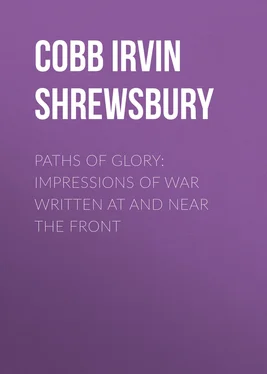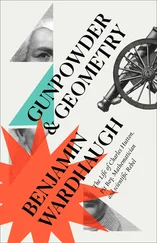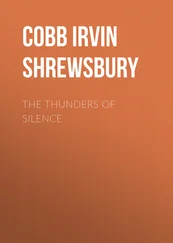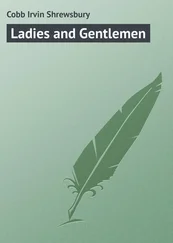Irvin Cobb - Paths of Glory - Impressions of War Written at and Near the Front
Здесь есть возможность читать онлайн «Irvin Cobb - Paths of Glory - Impressions of War Written at and Near the Front» — ознакомительный отрывок электронной книги совершенно бесплатно, а после прочтения отрывка купить полную версию. В некоторых случаях можно слушать аудио, скачать через торрент в формате fb2 и присутствует краткое содержание. Жанр: prose_military, История, foreign_edu, foreign_antique, foreign_prose, на английском языке. Описание произведения, (предисловие) а так же отзывы посетителей доступны на портале библиотеки ЛибКат.
- Название:Paths of Glory: Impressions of War Written at and Near the Front
- Автор:
- Жанр:
- Год:неизвестен
- ISBN:нет данных
- Рейтинг книги:3 / 5. Голосов: 1
-
Избранное:Добавить в избранное
- Отзывы:
-
Ваша оценка:
- 60
- 1
- 2
- 3
- 4
- 5
Paths of Glory: Impressions of War Written at and Near the Front: краткое содержание, описание и аннотация
Предлагаем к чтению аннотацию, описание, краткое содержание или предисловие (зависит от того, что написал сам автор книги «Paths of Glory: Impressions of War Written at and Near the Front»). Если вы не нашли необходимую информацию о книге — напишите в комментариях, мы постараемся отыскать её.
Paths of Glory: Impressions of War Written at and Near the Front — читать онлайн ознакомительный отрывок
Ниже представлен текст книги, разбитый по страницам. Система сохранения места последней прочитанной страницы, позволяет с удобством читать онлайн бесплатно книгу «Paths of Glory: Impressions of War Written at and Near the Front», без необходимости каждый раз заново искать на чём Вы остановились. Поставьте закладку, и сможете в любой момент перейти на страницу, на которой закончили чтение.
Интервал:
Закладка:
"I can well understand that the Belgians resent our coming into their country. We ourselves regret it; but it was a military necessity. We could do nothing else. If the Belgians put on uniforms and enroll as soldiers and fight us openly, we shall capture them if we can; we shall kill them if we must; but in all cases we shall treat them as honorable enemies, fighting under the rules of civilized warfare.
"But this shooting from ambush by civilians; this murdering of our people in the night—that we cannot endure. We have made a rule that if shots are fired by a civilian from a house then we shall burn that house; and we shall kill that man and all the other men in that house whom we suspect of harboring him or aiding him.
"We make no attempt to disguise our methods of reprisal. We are willing for the world to know it; and it is not because I wish to cover up or hide any of our actions from your eyes, and from the eyes of the American people, that I am refusing you passes for your return to Brussels to-day. But, you see, our men have been terribly excited by these crimes of the Belgian populace, and in their excitement they might make serious mistakes.
"Our troops are under splendid discipline, as you may have seen already for yourselves. And I assure you the Germans are not a bloodthirsty or a drunken or a barbarous people; but in every army there are fools and, what is worse, in every army there are brutes. You are strangers; and if you passed along the road to-day some of our more ignorant men, seeing that you were not natives and suspecting your motives, might harm you. There might be some stupid, angry common soldier, some over- zealous under officer—you understand me, do you not, gentlemen?
"So you will please remain here quietly, having nothing to do with any of our men who may seek to talk with you. That last is important; for I may tell you that our secret-service people have already reported your presence, and they naturally are anxious to make a showing.
"At the end of one day—perhaps two—we shall be able, I think, to give you safe conduct back to Brussels. And then I hope you will be able to speak a good word to the American public for our army."
After this fashion of speaking I heard now from the lips of Major Renner what I subsequently heard fifty times from other army men, and likewise from high German civilians, of the common German attitude toward Belgium. Often these others have used almost the same words he used. Invariably they have sought to convey the same meaning.
For those three days we stayed on unwillingly in Louvain we were not once out of sight of German soldiers, nor by day or night out of sound of their threshing feet and their rumbling wheels. We never looked; this way or that but we saw their gray masses blocking up the distances. We never entered shop or house but we found Germans already there. We never sought to turn off the main-traveled streets into a byway but our path was barred by a guard seeking to know our business. And always, as we noted, for this duty those in command had chosen soldiers who knew a smattering of French, in order that the sentries might be able to speak with the citizens. If we passed along a sidewalk the chances were that it would be lined thick with soldiers lying against the walls resting, or sitting on the curbs, with their shoes off, easing their feet. If we looked into the sky our prospects for seeing a monoplane flying about were most excellent. If we entered a square it was bound to be jammed with horses and packed baggage trains and supply wagons. The atmosphere was laden with the ropy scents of the boiling stews and with the heavier smells of the soldiers' unwashed bodies and their sweating horses.
Finally, to their credit be it said, we personally did not see one German, whether officer or private, who mistreated any citizen, or was offensively rude to any citizen, or who refused to pay a fair reckoning for what he bought, or who was conspicuously drunk. The postcard venders of Louvain must have grown fat with wealth; for, next to bottled beer and butter and cheap cigars, every common soldier craved postcards above all other commodities.
We grew tired after a while of seeing Germans; it seemed to us that every vista always had been choked with unshaved, blond, blocky, short- haired men in rawhide boots and ill-fitting gray tunics; and that every vista always would be. It took a new kind of gun, or an automobile with a steel prow for charging through barbed-wire entanglements, or a group of bedraggled Belgian prisoners slouching by under convoy, to make us give the spectacle more than a passing glance.
There was something hypnotic, something tremendously wearisome to the mind in those thick lines flowing sluggishly along in streams like molten lead; in the hedges of gun barrels all slanting at the same angle; in the same types of faces repeated and repeated countlessly; in the legs which scissored by in such faultless unison and at each clip of each pair of living shears cut off just so much of the road—never any more and never any less, but always just exactly so much.
Our jaded and satiated fancies had been fed on soldiers and all the cumbersome pageantry of war until they refused to be quickened by what, half a week before, would have set every nerve tingling. Almost the only thing that stands out distinct in my memory from the confused recollections of the last morning spent in Louvain is a huge sight- seeing car—of the sort known at home as a rubberneck wagon—which lumbered by us with Red Cross men perched like roosting gray birds on all its seats. We estimated we saw two hundred thousand men in motion through the ancient town. We learned afterward we had under-figured the total by at least a third.
During these days the life of Louvain went on, so far as our alien eyes could judge, pretty much as it probably did in the peace times preceding. At night, obeying an order, the people stayed within their doors; in the daylight hours they pursued their customary business, not greatly incommoded apparently by the presence of the conqueror. If there was simmering hate in the hearts of the men and women of Louvain it did not betray itself in their sobered faces. I saw a soldier, somewhat fuddled, seize a serving maid about the waist and kiss her; he received a slap in the face and fell back in bad order, while his mates cheered the spunky girl. A minute later she emerged from the house to which she had retreated, seemingly ready to swap slaps for kisses some more.
However, from time to time sinister suggestions did obtrude themselves on us. For example, on the second morning of our enforced stay at the House of the Thousand Columns we watched a double file of soldiers going through a street toward the Palais de Justice. Two roughly clad natives walked between the lines of bared bayonets. One was an old man who walked proudly with his head erect. He was like a man going to a feast. The other was bent almost double, and his hands were tied behind his back.
A few minutes afterward a barred yellow van, under escort, came through the square fronting the railroad station and disappeared behind a mass of low buildings. From that direction we presently heard shots. Soon the van came back, unescorted this time; and behind it came Belgians with Red Cross arm badges, bearing on their shoulders two litters on which were still figures covered with blankets, so that only the stockinged feet showed.
Twice thereafter this play was repeated, with slight variations, and each time we Americans, looking on from our front windows, drew our own conclusions. Also, from the same vantage point we saw an automobile pass bearing a couple of German officers and a little, scared-looking man in a frock coat and a high hat, whose black mustache stood out like a charcoal mark against the very white background of his face. This little man, we learned, was the burgomaster, and this day he was being held a prisoner and responsible for the good conduct of some fifty-odd thousand of his fellow citizens. That night our host, a gross, silent man in carpet slippers, told us the burgomaster was ill in bed at home.
Читать дальшеИнтервал:
Закладка:
Похожие книги на «Paths of Glory: Impressions of War Written at and Near the Front»
Представляем Вашему вниманию похожие книги на «Paths of Glory: Impressions of War Written at and Near the Front» списком для выбора. Мы отобрали схожую по названию и смыслу литературу в надежде предоставить читателям больше вариантов отыскать новые, интересные, ещё непрочитанные произведения.
Обсуждение, отзывы о книге «Paths of Glory: Impressions of War Written at and Near the Front» и просто собственные мнения читателей. Оставьте ваши комментарии, напишите, что Вы думаете о произведении, его смысле или главных героях. Укажите что конкретно понравилось, а что нет, и почему Вы так считаете.












